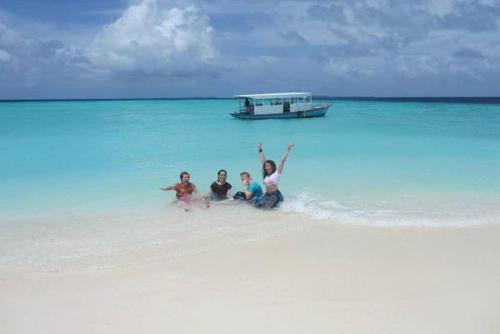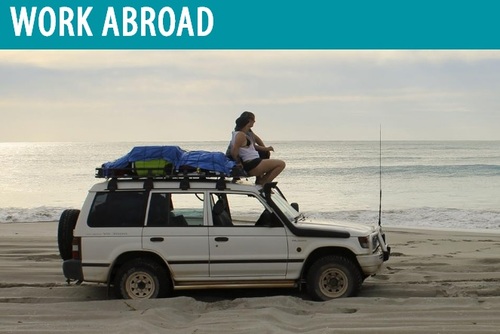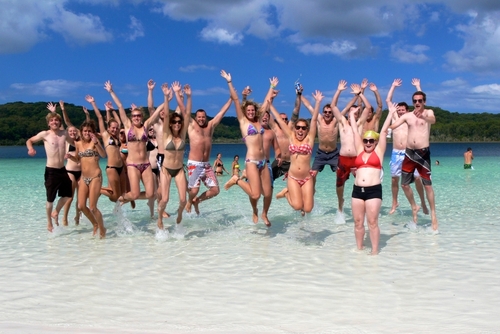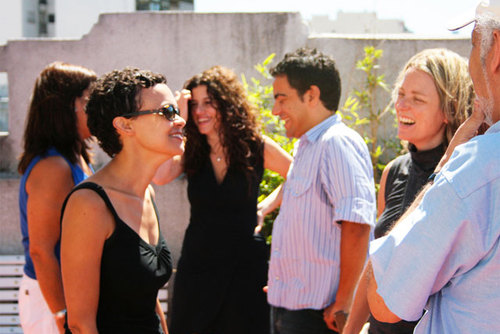How to Work Abroad
Working abroad is your chance to live in a new country, experience a different culture, make new friends, get paid and change your life. This is a great way to do something exciting and there are so many jobs available to apply for all year round.
Whether you are planning time out or would just like to live abroad and spend time doing something new, working abroad is an amazing opportunity.
There are jobs abroad for UK citizens, Irish, EU, American, Australian, Canadian, New Zealand & South African citizens and other nationalities. Some recruiters accept applications from under 18's but it really depends on the role and destination. Sometimes you do not require any previous experience or a degree and for some positions you'll benefit from free accommodation.
There are also work abroad packages from agencies who can book flights, arrange your visa, accommodation and help you to find employment. This is perfect if you are traveling solo or if you have never been abroad before. The hardest part is deciding where to go!
Destinations
Popular Countries
Find Jobs By Industry
- Airline Cabin Crew Jobs
- Au Pair and Nanny Jobs
- Campsite Jobs
- Care Work
- Chef and Cooking Jobs
- Cruise Ship Jobs
- Farm Jobs
- Festival & Events Jobs
- Fitness Instructor Jobs
- Gap Year Jobs
- Holiday Rep Jobs
- Horse Riding Jobs
- Hospitality Jobs
- Hotel Jobs
- Paid Internships
- Lifeguard Jobs
- Sailing Jobs
- Ski Jobs
- Spa & Beauty Jobs
- Sports Coaching Jobs
- Summer Camp Jobs
- Summer Jobs
- Teaching Jobs
- TEFL Jobs
- Theme Park Jobs
- Tour Guide Jobs
- Volunteer Work
- Winter Jobs
- Yacht Crew Jobs
- Yoga Instructor Jobs
Courses
Earn a qualification to get paid employment overseas:
- TEFL Courses
- Online TEFL Courses
- Safari Guide Training Courses
- Sailing Insructor Courses
- Ski and Snowboard Instructor Courses
Professional Careers
- Engineering Jobs
- Internships
- Marketing, Advertising and PR Jobs
- Media Jobs
- Medical Work
- Photography and Videography Jobs
- Sales Jobs
- Travel Consultant Jobs
- Web Design Jobs
Reasons to Do a Work Abroad
A job abroad is your chance to gain work/life experience, make friends and potentially find a new home. Some working holidays last 12 - 24 months or longer and the time spend away doing this can enhance your employment prospects and provide the experience of a lifetime. Popular positions can be found in hospitaity, bar tending, management, farm work, hostels and hotel, resturants, cafes, fast food outlets and more.
Jobs Abroad for Students & Graduates
If you are currently studying or have finished college or university and like the idea of living abroad you can find employment opportunities all around the world. We help thousands of students and graduates to find temporary and full time jobs all around the world - a lot of which require little experience.
Jobs for Couples Abroad
If you are a couple and want to go overseas to work then there are lots of positions in a range of industries. Sometimes gaining employment as a couple can be tough, you will both need similar interests, skills and also be flexible to any type of work.
Popular places to see employment abroad as a couple can be a camp sites, holiday camps, bars, hotels, hostels, farms, teachers and even working as au-pairs. Various seasonal employers hire couples to work overseas and most include free accommodation.
How to Get Hired
Here are some tips to help you find a job overseas.
1. Develop a strategy
Before you start randomly trawling job listings you should create an overall job-search strategy. It’s vital that you plan your job search; if you don’t then you are likely to get frustrated and miss possible opportunities. As they say, getting a job is a job in itself, and finding one abroad is full of extra challenges.
2. What job do you want?
Where to begin? First, go back and think about why you are interested in a job overseas. Second, review your qualifications and develop a list of the skills at your disposal. Third, assess your accomplishments from various experiences. Fourth, analyse the results of the first three steps and see if you can develop a profile of the types of jobs that interest you and that you are qualified for.
3. Research!
As with any job hunt research is vital. Take the time to learn about the cultural, political and economic situations in each of the places you are considering moving to. You don’t want to end up moving to a warzone after all. By learning the laws and customs of a country you can prepare yourself accordingly. Carefully researching the visas and work permits for each country is essential, and you should do it early, before you apply for any position. If you don’t already have a visa, your application may not even be considered. Many companies can offer you employment only if they can prove that there is no one suitable who already has a visa.
4. Develop your language skills if needed
Depending on the country you want to move to, you may need to speak a foreign language. The main three things that global employers are looking for in potential employees are; technical knowledge in your chosen field, an ability to adapt to a new culture and language fluency skills. Being able to speak a foreign language could also help you land a job in your home country as well.
5. Write a CV
Before you start writing a CV you need to research what sort of CV your chosen nation typically uses. The style of CV varies from country to country. Employers in the USA tend to favour shorter CVs (or Resumes as they call them) whilst some European and Asian employers expect a fully detailed one. Your CV is your passport and your personal marketing tool when seeking international employment. It tells an employer who you are, where you have come from and whether you are qualified for the job. It is critical that you consider how you want to present yourself. While your CV should always be honest and accurate, you must avoid any cultural or lingual nuances that may reflect negatively upon you.
6. Make use of the internet and social networks
To help with all of the above points make sure you use the internet. All of the world’s knowledge is pretty much available at your finger tips and by using social networking sites such as Facebook, Instagram and X you should be able to get in contact with more people. Forum are also a good place to meet others. Use other peoples experience to help you prepare for your own move; chances are that there is someone online that has already done what you want to do. Ask them for advice!
7. Make your application stand out
Once you’ve sorted out your CV and learnt all you can about your chosen country you then need to decide what employers you want to work for and make an application that will make you stand out from the crowd. Your application will be far more attractive if it bears a local address or a fixed date of arrival. Even if all you do to start is connect up with someone local to use their mobile phone number or home address, you’ll be more in line with local job candidates.
8. Fully prepare for an interview
As with any job interview the key to success is to fully prepare and practice. Also be ready for the unconventional. As you are hoping to get a job abroad interviews could be carried out over the internet or via telephone. If this is the case than be sure to speak in a calm clear voice. An interview could also be a big test for your language skills so make sure you have learnt enough to a satisfactory standard. Whatever form the interview takes you still have to articulate your skills, accomplishments and education in order to show that you are the ideal person for the job. It also pays to research your chosen employer as many companies ask you questions about themselves, and be prepared to ask questions yourself.
9. Follow up on all job leads
Make sure to follow up on all possible job leads. Make phone calls and send e-mails to all your prospective employers and enquire about the status of job openings. You have to be a bit more assertive in your follow-up, but be careful of sounding too aggressive or desperate. Again, know the culture of the country, and be sure to send thank-you notes after all interviews and other contacts. After all if you don’t ask you don’t get.
10. Are you certain you want to emigrate?
Finally, it is vital that you are personally and psychologically ready for the move. Even if you’re going to a country where they speak the same language, you’ll encounter differences in everyday life that require flexibility, patience and a sense of humour.





















